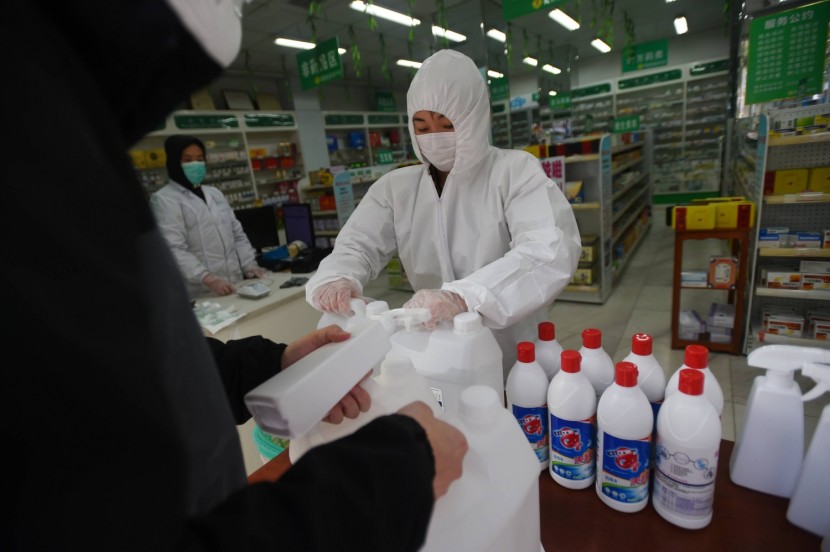
Labels of household disinfectants saying that they can kill 99.9% of bacteria and viruses have been circulating the internet lately and this is in relation to the continuous spread of the 2019 novel coronavirus.
It is advertised in the back of disinfectants like Lysol and Clorox that Human Coronavirus is included in the 99.9% of germs that they can disinfect from surfaces. Along with it are E.coli (Eschirichia coli) , two strains of flu, salmonella, and others. Hence, this sparks the inquiries if these disinfectants would work against the latest strain of coronavirus which causes COVID-19.
Per CNN Health, the United States Environmental Protection Agency stated that the answer to that question is complicated. The "human coronavirus" at the back of the disinfectants refer to the general group of coronaviruses which were first identified in the 1960s, and according to the US Centers for Disease Control and Prevention there are seven over-all types of coronavirus. Since the novel coronavirus is a new strain, there are still no studies that support that household disinfectants will work effectively against the virus as well as it did in the previous strains.
According to a senior scholar at the John Hopkins Centers for Health Security, Dr. Amesh Adalja, since disinfectants have been proven effective in the fighting off other human coronaviruses it was initially thought to be effective against Wuhan's coronavirus.
Per the guidance of the Environmental Protection Agency (EPA) for emerging viral pathogens, since the aforementioned disinfectants have proven effective against previous strains, users can safely use them to spray and wipe surfaces and areas were coronavirus is suspected.
The EPA also said that manufacturers of these disinfectants based on previously approved claims on harder to kill viruses can apply for "emerging pathogens claim." Then the agency will determine and review if the company can safely make such claims. If it gets approved they can already make off-label claims.
In addition, EPA has advised that several Lysol products have already been approved for efficacy against coronavirus. However, the company that owns Lysol and other hygiene brands, Reckitt Benckiser said that there is still no "definitive scientific confirmation" that the products can defend against the specific virus, and it can only be proven once it testing against the specific strain is conducted.
Although it is possible that getting in contact with objects of surfaces contaminated with the virus and then touching their mouths and eyes can cause coronavirus infection, this is not the main pathway of transmission for the pathogen. Thus, disinfectants and wipes can only do so much. Also, Lysol and Clorox are designed for home surfaces and not body parts, which cannot give us foolproof protection.
Meanwhile, a senior infection prevention epidemiologist, Saskia Popescu, who is also a consultant for Clorox, said that if people are concerned about contracting the novel coronavirus it is recommended that they follow the same practices that are usually done when trying to prevent common respiratory infections such as washing their hands thoroughly, disinfecting shared workspaces and covering themselves when they cough or sneeze. She said that these basic things are all effective even if it is just common influenza or COVID-19.
As of the latest update, the coronavirus death toll has risen to 2,800 world wide and has infected at least 81,700 people.
Related article: Coronavirus Man-made? Taiwanese Professor Claims COVID-19 Theory








